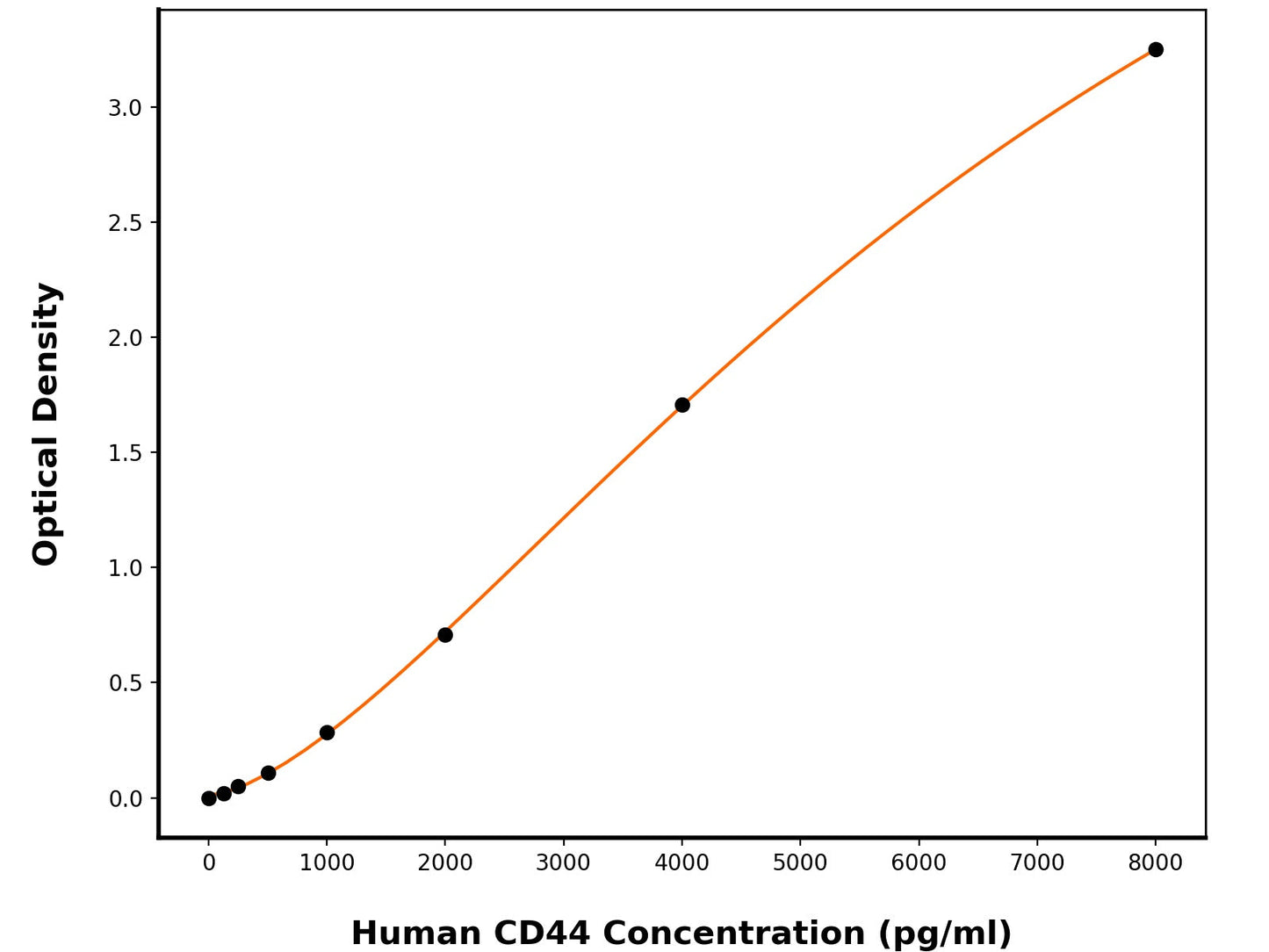1
/
of
1
Human CD44 Antigen (CD44) ELISA Kit
Human CD44 Antigen (CD44) ELISA Kit
This ELISA kit is designed to detect Human CD44 Antigen (Human CD44). The assay plate has been pre-coated with mouse anti-Human CD44 monoclonal antibody. When the sample containing CD44 is added to the plate, it binds to the antibodies coated on the wells. Then, a horseradish peroxidase conjugated mouse anti-Human CD44 Antibody is added to the wells and binds to CD44 in the sample. After washing the wells, substrate solutions are added, and the color intensity is directly proportional to the amount of Human CD44 present. The reaction is stopped by adding an acidic stop solution, and the absorbance is measured at 450 nm.
Catalog No:
BPE248
Regular price
$624.00 USD
Regular price
$480.00 USD
Sale price
$624.00 USD
Unit price
/
per
2 weeks
Couldn't load pickup availability
Product Details
Species Reactivity
Human
Sensitivity
36.66 pg/mL
Detection Range
125-8000 pg/mL
Sample Type
Serum, plasma, cell culture supernates
Incubation(s)
3.5 hour(s)
Research Areas
Immunology, Cancer, Stem cells
Background
CD44 is a type I transmembrane protein and a member of the cartilage link protein family. It is involved in cell-cell and cell-matrix interactions and signal transduction. Several CD44 ligands have been identified. The most extensively characterized ligand for CD44 is hyaluronan, a component of the extracellular matrix. CD44 protein is expressed on the majority of immune cells. The binding of CD44 to hyaluronan is induced on T lymphocytes after activation by antigen and on monocytes after stimulation by inflammatory agents. Under inflammatory conditions, CD44 on endothelial cells presents hyaluronan to CD44 on activated T lymphocytes and mediates a rolling interaction under flow conditions. Perturbations of the hyaluronan-CD44 interaction at the plasma membrane by various antagonists result in attenuation of receptor tyrosine kinase and transporter activities and inhibition of tumor progression in vivo. CD44 is known to interact with the ezrin family (ERM family) members and form a complex that plays diverse roles within both normal and abnormal cells, particularly cancer cells. CD44 and ezrin and their respective complex have properties suggesting that they may be important in the process of tumour-endothelium interactions, cell migrations, cell adhesion, tumour progression and metastasis.
Shipping Condition
Shipped on cold gel packs.
Storage Condition and Shelf Life
This product can be stored at 2-8C.
Analyte
CD44 antigen
Regulatory Status
For Research Use Only

